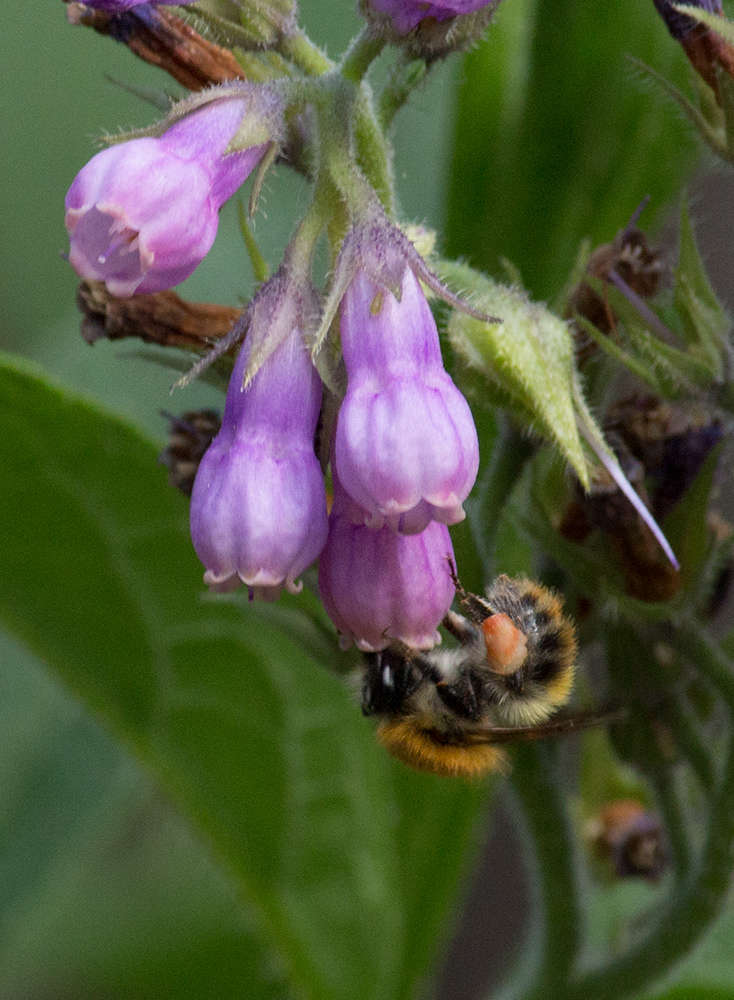Saving The Bees?

Recently I read an article on “Saving the bees” which promoted Bee Hive Adoption. It was the first I had herd of supporting bees via adoption. It struck me as a neat idea at first. But as the article went on, I found it focusing on honey bees and the “unique service they provide”. By the end of it I found myself despising the idea and the article. As it manipulated real concerns into some plea for supporting commercial honey bees. What bothers me is misinformation, there seems to be a lot of it out there.
This unique service offered by honey bees lies in their large social structure. They make hives which is not all that common in the bee species. Most bee species are solitary, which makes them difficult to manage commercially. Where honey bees can be temporarily freighted cross country to paying farmers. As it boosts crop yields for farmers where the native pollinators aren’t enough. The pollination business is surprisingly more profitable than the honey business. This social mechanic enables the commercial pollination business to exist. And this pollination service enables farmers to continue ignoring local pollinators with an on call alternative.
The cause of bees disappearing (in my opinion) is a whole range of things. Intensive agriculture has robbed the land of a lot of wild flowers. Recent obsessions with lawns deprive various flowers like daises and dandelions from blooming. There are over 40,000,000 acres of lawn in the USA which requires fuel and man power to maintain… If these were left to over grow even for a month during summer would provide a considerable boost to pollen and nectar available. There are strong links to bee health and pesticides (personally I believe its more than a link). Monoculture where 600,000 acres of one crop are grown (like almonds in California) only bloom for a week or two, this lack of diversity staves pollinators throughout the season. The Varroa mite which travelled the trans siberian railway from Korea is plaguing our better known honey bee. And the commercial pollination service is a great vehicle for the varroa mite to get around along with other diseases. All of this could be generalised into “modern farming practices” which are causing the population decline.
By adopting a hive you are effectively supporting an agriculture industry which contributes to the demise of pollinators. I would urge anyone to support all pollinators. But don’t spend dollars supporting an industry which helps perpetuate the problem.
Things you can do without adopting a hive.
- Buy organic if possible. This takes money away from conventional farming practices and supports pollinator friendly practices.
- Let your lawn overgrow if you have one, even a few square meters would help.
- Plant flowers or flowering fruit and vegetables.
- Don’t have a garden but you can spare a few bucks? Do a search for bee or butterfly friendly flowers seeds it’ll cost maybe $1 or $2, and go do some gorilla gardening. It’s a kind of positive environmental graffiti or vandalism where you find an unutilised patch of ground and plant something useful there. Try to find natives for your area, ask a gardner or bee keeper if unsure.
- Become a beekeeper. You can actually create masonary bee home in a very small block of wood. Details on this can be found online. Its very unusual for them to sting as they are not protective like the honey bees. Also they don’t need a big working colony so you probably won’t even notice them.
- Best of all learn and talk about these topics with friends and family. Bring attention to bees or food production which helps raise awareness.
https://youtu.be/nCk8zvIN8Dc
I have done a fair bit of reading on this topic. If I’m incorrect or misleading in any area please let me know in the comments below.
